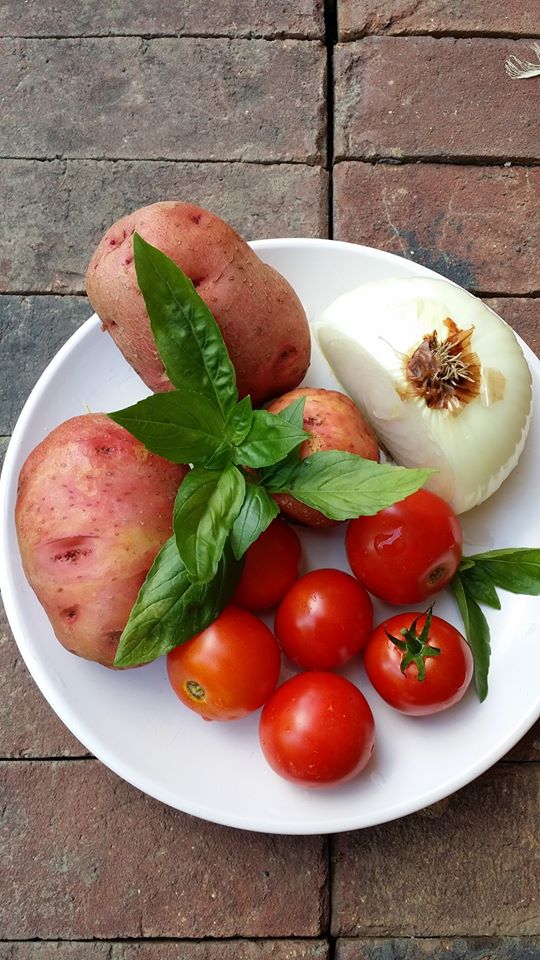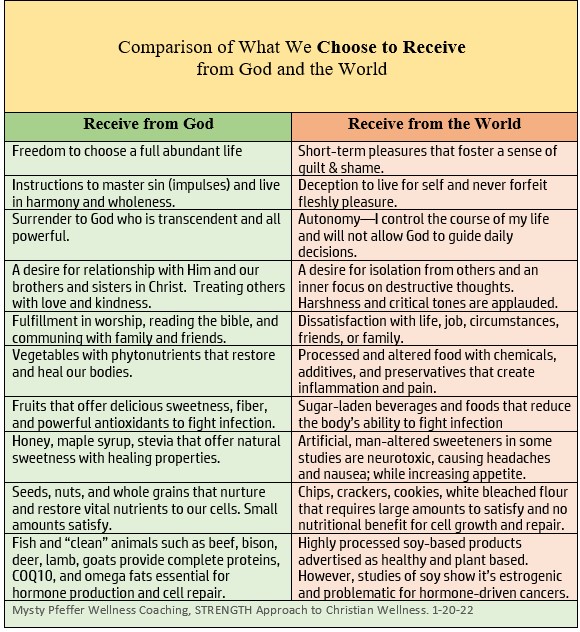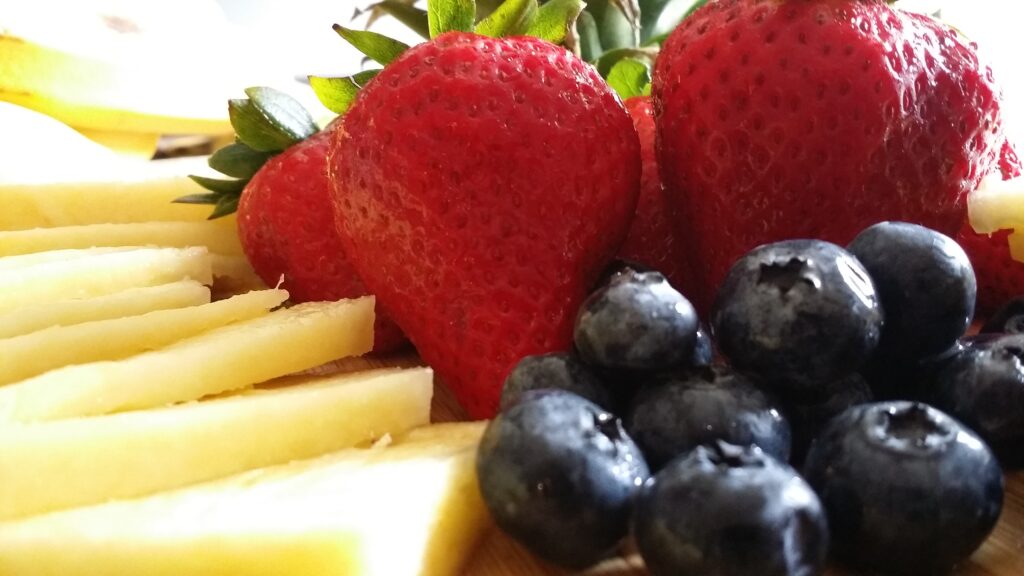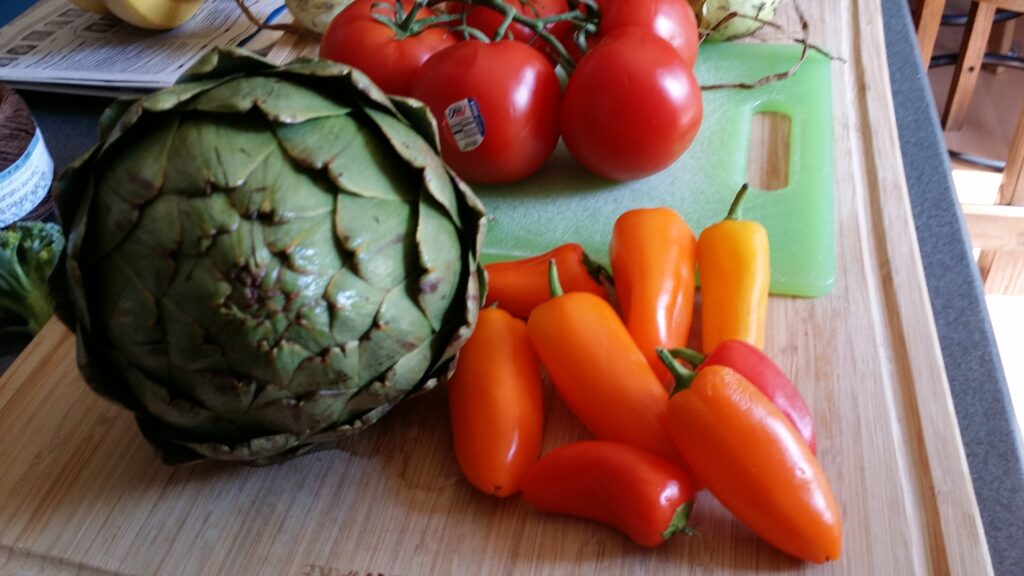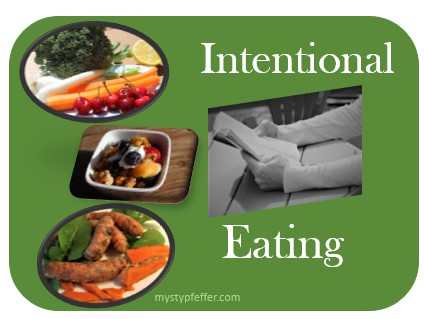10 Evidenced-Based Reasons to Drink Kombucha
The origins of Kombucha date back to China in 220 B.C. So, for at least two thousand years the drink has been used as natural medicine in cultures around the world. For me, it has been a delicious, naturally carbonated drink to enjoy while helping heal my gut!
Although there have been many case studies and testimonies like mine regarding the use of Kombucha as a beneficial fermented drink, it’s hard to find evidence-based studies. So, my mission today is to read and relay to you what has been discovered in studies and draw conclusions for possible benefit rather than offer scientific proof.
If you haven’t heard about it yet, Kombucha is a nonalcoholic, fermented tea that contains a symbiotic culture of mycobacterium and yeast (SCOBY). People use black tea, green tea, or rooibos tea to make Kombucha. I kept asking my friend for starter several years ago and she kept telling me, “It’s not ready yet”. So, I ordered a starter from the internet, and it contained the tea and “SCOBY”.
Clarifying Confusion
I followed all the directions and joined a Facebook group to learn the process and ask questions. They were awesome helpers in this process and very knowledgeable! Although many articles call the slimy thick covering over the tea the SCOBY, this administrator informed me it is actually a “pellicle”, a byproduct of the bacteria consuming the sugar, and not necessary to produce Kombucha. In my reading of various studies, the pellicle is still regarded by some as a SCOBY and tested positive for microbial growth; although not nearly as much as the brew itself.
Whatever you call it, SCOBY/Pellicle, just know it does speed the fermentation process and make the brew stronger. But it’s not necessary to make a new batch of Kombucha.
I found I did not like the stronger brew and began leaving it out each week and just using the tea. My Kombucha tasted less yeasty and more pleasant. If you begin the process, you will adjust your brew to your tastes too. More importantly, you’ll like what science has to say about its contents.
The Pangenomics Group, School of Science, in Melbourne, Australia is one of the sources used in this article for the “general” mycobacterial content of Kombucha. Their samples were obtained from The Good Brew Kombucha Company, which produces kombucha from 75% green tea and 25% oolong tea. The amount was supplied in 330 mL glass bottles and kept refrigerated at 39 degrees Fahrenheit, which is how they are sold commercially.
10 Evidenced Based Reasons to Drink Kombucha
- Kombucha contains 3.3 mg of protein per milliliter. (1) Say what?! I had no idea about its protein content before I read this article. This is good news for people who don’t eat meat, are not big eaters in general, or who have difficulty digesting beans. It is also helpful for people looking for other sources of protein when they have slowed gastric emptying like gastroparesis, since they don’t have the fully functioning stomach enzymes to properly digest protein. They don’t have to, the bacteria apparently did it and produced it for them.
- Kombucha is low in sugar— Now be aware the amount of sugar varies with the brand you choose, so read your labels! Moreover, be cautious of the amount of sugar you add to the second fermentation when you make it yourself. Generally, if you follow the directions on your chart for making Kombucha, the sugar content should be consumed by the bacteria. I use 3/4 cup of sugar to 1 gallon of green tea in my first fermentation and 1 tablespoon for the second fermentation to keep the sugar content low. The batch tested from Good Brew had the following: glucose: 1.87 g/L; sucrose 1.11 g/L; fructose: 0.05 g/L (1) I use that as a “general” reference since I don’t send mine off to a laboratory for analysis.
- Kombucha is High in Polyphenols—It has approximately 290mg in 100ml of tea. “There is substantial epidemiological evidence that a diet high in polyphenol-rich beverages protects against developing cardiovascular disease and type 2 diabetes. (2) The gut bacteria play a crucial role in absorbing and metabolizing polyphenols; you’ll learn more about those critters in my next point. But for now, just understand polyphenols, in many interventional and epidemiological studies, show protection against chronic diseases like high cholesterol, high blood pressure, and they help with energy metabolism (2). The rich polyphenols in green tea are of great interest for drug discovery and widely known for their hypocholesteremic, antibiotic, anticarcinogen and hypoglycemic properties {2}
- Kombucha contains a Diverse number of Probiotics–There were 198 species of probiotics (Good gut microbes) found in the Good Brew sample. Again, a generalization, but still a logical guideline of hope for brews grown in home production, or through commercial consumption. More importantly, the acidity of Kombucha is very high at 3:00 very close to the acidity of the stomach. Yes, that’s a good thing! God knew what he was doing! We need that acid to digest protein components in our food! But He also lined our stomach with protective mucous so the acid would not eat a whole in our intestinal tract. The bacteria also survive and thrive in this acidic environment, therefore helping to place colonies throughout the intestine.
Interestingly enough, in a study of Turkish Kombucha, the bacterial diversity was higher in the brew than in the biofilm (or pellicle as mentioned above) with a peak on the seventh day of fermentation. The biochemical properties changed as the fermentation progressed. The beneficial properties of the beverage such as the radical scavenging ability increased significantly with a maximum increase at day 7 in this study [3] - The good bacteria and Yeast in Kombucha destroy pathogenic bacteria and yeast Although this is information occurred in a laboratory and in vitro (in test tubes), it’s still pretty impressive! The battle of the bacteria and yeast progresses as each are identified days 3 and 7, as they are counted under powerful microscopes! Home batches obtained in Egypt and Saudi Arabia showed Staphylococcus Aureus and E. Coli were the most susceptible to our SCOBY friends, while showing good antifungal activity against A. flavus and A. Niger (strains of harmful yeast). [4] So, if you’ve been afraid of trying Kombucha because of yeast overgrowth, fear no more. Pathogenic bacteria steadily declined in the presence of Kombucha probiotics. It is thought, the production of acetic acid from the SCOBY is responsible for pathogen decline. [4]
- Kombucha reverses Type 2 Diabetes in Rat Experiment—A food engineering and biotechnology institute in China induced Type2 DM in rats then treated them with Kombucha. It is thought the development of Type 2 DM occurs through gut microbiome imbalance (as discussed in point 5). The development of T2DM is thought to progress through three pathways, including the short-chain fatty acid pathway, endotoxin pathway and bile acid pathway [5] Four weeks of kombucha intervention increased the abundance of short chain fatty acids (SCFAs) producing bacteria and reducing gram-negative bacteria. The improvement in gut microbiota reduced the damage to the intestinal barrier, hence reducing the displacement of lipopolysaccharide (LPS) and stopping inflammation and insulin resistance in the rats.
In addition, the increased levels of SCFAs also improved islet B cell function by promoting secretion of gastrointestinal hormones GLP-1/PYY. GLP-1 is the hormone that tells your brain you are full and slows stomach emptying of food to the intestine. PYY is a peptide to slow digestion and give you a sense of satiety also.
It’s funny how all of these things occur in the gut to help us heal. I met a lady at my AZURE standard drop and she told me giving her elderly mother a small amount of kombucha each day helped lower her blood sugars. They continued to improve to the point of removing all of her medication. I know this is just a case study, but in light of the rat study, it’s worth investigating further. - Kombucha and reduced damage of heavy metal toxicity–Another study done in India on rats induced with lead poisoning, researchers observed DNA fragmentation and lipid peroxidation. In lipid peroxidation free radicals steal electrons from lipids in the cell membranes resulting in cell damage. When the rats were given kombucha to drink, there was reduced lipid peroxidation and DNA damage. Since lipid damage is implicated in many vascular diseases, this explains why Kombucha can be a therapeutic agent in helping decrease inflammation.
- Kombucha helped a cancer drug lower cancer activity—-Scientist combined kombucha with doxorubicin and found that it increased anticancer activity in test tubes. [7] In addition to supporting the detoxification of the liver in rats, consumption of Kombucha is also known to help excrete heavy metal substances and environmental pollutants from the human body through the kidneys. [
- The probiotics in Kombucha produce glucuronic acid. Glucuronic acid helps the liver detoxify certain drugs like alcohol, morphine, steroids, benzodiazepines, Tylenol, and NSAIDs in vitro. So, if you’re looking for a good detoxification drink, look no further. Glucuronic acid is also thought to help with the metabolism of steroid hormones and aldosterone. [8]
- Kombucha has a respectable amount of B vitamins and Vitamin C. A generalized amount of B and C vitamins in Kombucha help build the immune system, provided energy, and fight infection and cancer. Combined with the high amount of polyphenols, it’s no wonder it has been effective in destroy even H. pylori! [8]. The general concentration of vitamins in Kombucha per Villarreal‐Soto and associates from Univ. de Toulouse were as follows:
| Villarreal‐Soto and associates from Univ. de Toulouse, France [9] |
|||
| Vitamin B1 | 0.74 mg/mL | 70 g/L | 15 |
| Vitamin B2 | 8 mg/100 mL | 70 g/L | 10 |
| Vitamin B6 | 0.52 mg/mL | 70 g/L | 15 |
| Vitamin B12 | 0.84 mg/mL | 70 g/L | 15 |
| Vitamin C | 25 mg/L | 70 g/L | 10 |
I hope you have enjoyed reading the 10 Evidenced-based reasons to drink Kombucha. As you can see, there is exciting research in the area of kombucha brewing and its benefits!
One last point, the temperature of the room does affect growth and fermentation rates of the brew. So, I do keep my room between 68 and 78 degrees. When it’s too hot is speeds up fermentation and yeast production and when it’s too cold it slows it down. Also, I am very careful to clean everything, so it does not get contaminated with mold.
I am happy to share my video of Kombucha making with you to see how I make my weekly batch. I pray you have a good week and stay healthy eating what God puts in the garden!
God Bless!
References:
- Kaashyap M, Cohen M, Mantri N. Microbial Diversity and Characteristics of Kombucha as Revealed by Metagenomic and Physicochemical Analysis. Nutrients. 2021;13(12):4446. Published 2021 Dec 13. doi:10.3390/nu13124446
- Williamson G. The role of polyphenols in modern nutrition. Nutr Bull. 2017 Sep;42(3):226-235. doi: 10.1111/nbu.12278. Epub 2017 Aug 15. PMID: 28983192; PMCID: PMC5601283.
- Arıkan, M., Mitchell, A. L., Finn, R. D., & Gürel, F. (2020). Microbial composition of Kombucha determined using amplicon sequencing and shotgun metagenomics. Journal of food science, 85(2), 455–464. https://doi.org/10.1111/1750-3841.14992
- Al-Mohammadi, A. R., Ismaiel, A. A., Ibrahim, R. A., Moustafa, A. H., Abou Zeid, A., & Enan, G. (2021). Chemical Constitution and Antimicrobial Activity of Kombucha Fermented Beverage. Molecules (Basel, Switzerland), 26(16), 5026. https://doi.org/10.3390/molecules26165026
- Xu, S., Wang, Y., Wang, J., & Geng, W. (2022). Kombucha Reduces Hyperglycemia in Type 2 Diabetes of Mice by Regulating Gut Microbiota and Its Metabolites. Foods (Basel, Switzerland), 11(5), 754. https://doi.org/10.3390/foods11050754
- Dipti P, Yogesh B, Kain AK, Pauline T, Anju B, Sairam M, Singh B, Mongia SS, Kumar GI, Selvamurthy W. Lead induced oxidative stress: beneficial effects of Kombucha tea. Biomed Environ Sci. 2003 Sep;16(3):276-82. PMID: 14631833.
- Rasouli L, Aryaeian N, Gorjian M, Nourbakhsh M, Amiri F. Evaluation of cytotoxicity and anticancer activity of kombucha and doxorubicin combination therapy on colorectal cancer cell line HCT-116. J Educ Health Promot. 2021 Oct 29;10:376. doi: 10.4103/jehp.jehp_1456_20. PMID: 34912912; PMCID: PMC8641728.
- Mousavi, S. M., Hashemi, S. A., Zarei, M., Gholami, A., Lai, C. W., Chiang, W. H., Omidifar, N., Bahrani, S., & Mazraedoost, S. (2020). Recent Progress in Chemical Composition, Production, and Pharmaceutical Effects of Kombucha Beverage: A Complementary and Alternative Medicine. Evidence-based complementary and alternative medicine : eCAM, 2020, 4397543. https://doi.org/10.1155/2020/4397543
- Villarreal‐Soto S. A., Beaufort S., Bouajila J., Souchard J.-P., Taillandier P. Understanding kombucha tea fermentation: a review. Journal of Food Science. 2018;83(3):580–588.
Chakravorty S, Bhattacharya S, Chatzinotas A, Chakraborty W, Bhattacharya D, Gachhui R. Kombucha tea fermentation: Microbial and biochemical dynamics. Int J Food Microbiol. 2016 Mar 2;220:63-72. doi: 10.1016/j.ijfoodmicro.2015.12.015. Epub 2016 Jan 7. PMID: 26796581.
